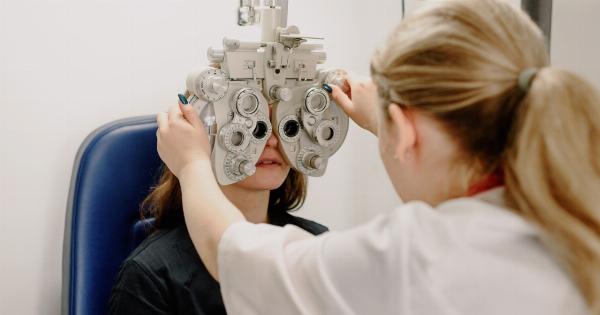Smoking is a habit that continues to negatively impact millions of people around the world. It not only harms the respiratory system but can also lead to various chronic conditions.
One such condition is rheumatoid arthritis (RA), an autoimmune disorder that primarily affects the joints. Research has shown a strong correlation between smoking and the development of RA. In this article, we will explore how quitting smoking can help prevent rheumatoid arthritis and improve overall health.
Understanding Rheumatoid Arthritis
Rheumatoid arthritis is a chronic inflammatory disorder that primarily affects the joints, causing pain, stiffness, and swelling, which may result in limited mobility and decreased quality of life.
Unlike osteoarthritis, which is caused by wear and tear on the joints, RA is an autoimmune disease. It occurs when the immune system mistakenly attacks the body’s own tissues, primarily targeting the synovium, a thin membrane that surrounds the joints.
The exact cause of rheumatoid arthritis is still unknown. However, researchers have identified several risk factors that may contribute to its development.
These include genetic predisposition, hormonal imbalances, and certain environmental factors, such as smoking.
The Link Between Smoking and Rheumatoid Arthritis
Multiple studies have shown a strong association between smoking and an increased risk of developing rheumatoid arthritis. In fact, individuals who smoke are at a significantly higher risk of developing RA compared to non-smokers.
The risk is further compounded by the duration and intensity of smoking.
It is believed that smoking triggers an immune response that leads to the development of RA in genetically susceptible individuals.
Chemicals present in cigarette smoke, such as nicotine and tar, can activate certain immune cells and promote inflammation throughout the body. This sustained inflammation can damage joint tissues and contribute to the progression of RA.
Quitting Smoking: A Step Towards Prevention
While the connection between smoking and rheumatoid arthritis is well-established, the good news is that quitting smoking can significantly reduce the risk of developing RA.
Several studies have shown that the risk decreases gradually after quitting and continues to decline over time.
When a person stops smoking, the body starts to repair the damage caused by smoking. The inflammatory processes triggered by smoking begin to subside, leading to a decrease in overall inflammation and oxidative stress.
This reduction in inflammation and oxidative stress can help protect against the development of rheumatoid arthritis.
Benefits of Quitting Smoking for Rheumatoid Arthritis
In addition to reducing the risk of developing rheumatoid arthritis, quitting smoking provides numerous other benefits for individuals already living with the condition. Here are some ways quitting smoking can positively impact RA:.
1. Reduced Inflammation
Smoking promotes systemic inflammation, which can exacerbate the symptoms of rheumatoid arthritis. By quitting smoking, individuals can reduce overall inflammation levels in their bodies, leading to a decrease in joint pain, swelling, and stiffness.
2. Better Response to Treatment
Smoking has been shown to reduce the effectiveness of certain medications used to treat rheumatoid arthritis. Quitting smoking can help optimize the response to these medications, leading to better disease management and improved quality of life.
3. Slowed Disease Progression
Studies have indicated that smoking may accelerate the progression of rheumatoid arthritis and increase joint damage.
Quitting smoking can slow down the disease progression, preserve joint function, and reduce the need for more aggressive treatments such as joint replacements.
4. Improved Respiratory Health
Smoking not only affects the joints but also harms the respiratory system. Quitting smoking improves lung function, reduces the risk of respiratory infections, and enhances the overall respiratory health of individuals with rheumatoid arthritis.
5. Enhanced Immune System
Quitting smoking strengthens the immune system, which plays a crucial role in the development and progression of rheumatoid arthritis. A stronger immune system can better regulate inflammation and reduce the likelihood of autoimmune reactions.
6. Cardiovascular Benefits
Rheumatoid arthritis is associated with an increased risk of cardiovascular diseases. Smoking only exacerbates this risk.
By quitting smoking, individuals can improve their cardiovascular health, reducing the likelihood of heart attacks, strokes, and other related complications.
7. Improved Overall Health
Smoking is a significant risk factor for various other chronic diseases, including cancer, heart disease, stroke, and respiratory conditions.
By quitting smoking, individuals can improve their overall health, significantly reducing the risk of developing these conditions and improving their quality of life.
Quitting Strategies and Support
Quitting smoking can be a challenging process, but it is not impossible. Here are some strategies and support options that can help individuals in their journey to quit smoking:.
1. Set a Quit Date
Choose a specific date to quit smoking and mentally prepare for it. Having a target date can provide motivation and a clear goal to work towards.
2. Seek Professional Advice
Consult a healthcare professional who can provide guidance on quitting strategies and recommend appropriate cessation aids such as nicotine replacement therapy or prescription medications.
3. Build a Support Network
Inform friends, family, and coworkers about the decision to quit smoking. Their support and encouragement can make a significant difference throughout the quitting process.
4. Identify Triggers
Recognize situations or activities that trigger the urge to smoke and develop strategies to avoid or cope with them. This may involve finding alternative ways to manage stress or distraction techniques.
5. Join Support Groups
Consider joining local or online support groups for individuals who are quitting smoking. These groups provide a space to share experiences, tips, and encouragement.
Conclusion
Quitting smoking is a crucial step towards preventing rheumatoid arthritis and mitigating its impact on individuals already living with the condition.
The link between smoking and RA is well-established, with smoking being a significant risk factor for developing the disease.
By quitting smoking, individuals not only reduce their risk of developing RA but also experience numerous benefits, including reduced inflammation, improved treatment response, slowed disease progression, enhanced immune system, cardiovascular benefits, improved respiratory health, and overall better health. Quitting smoking may be challenging, but with the right strategies and support, it is achievable and immensely beneficial for both preventing and managing rheumatoid arthritis.





























